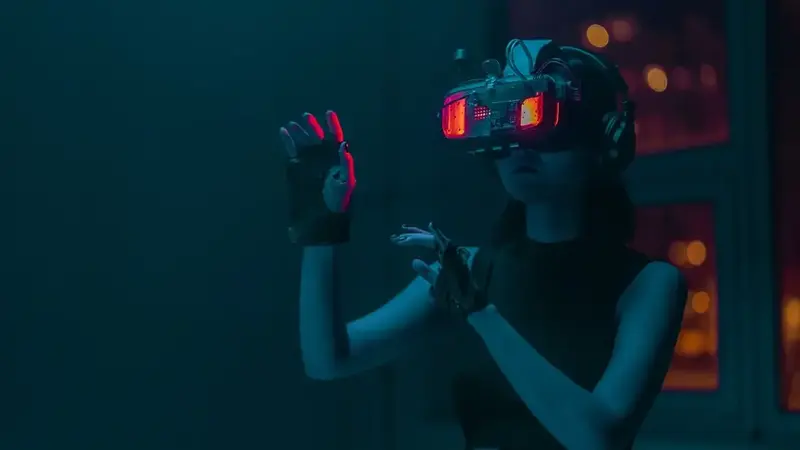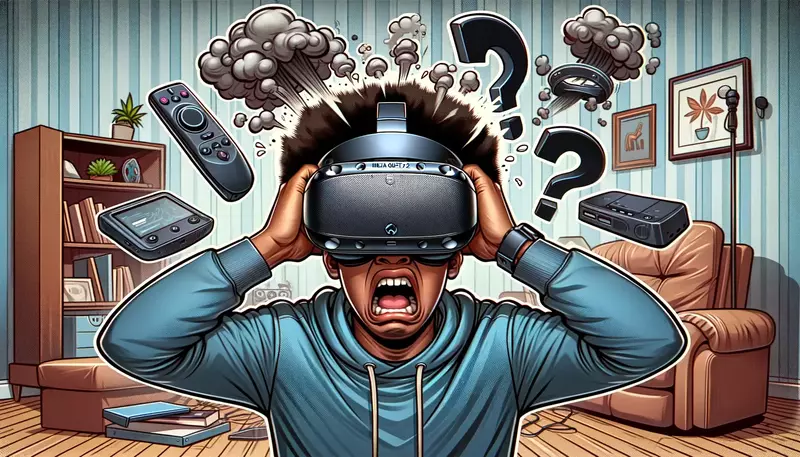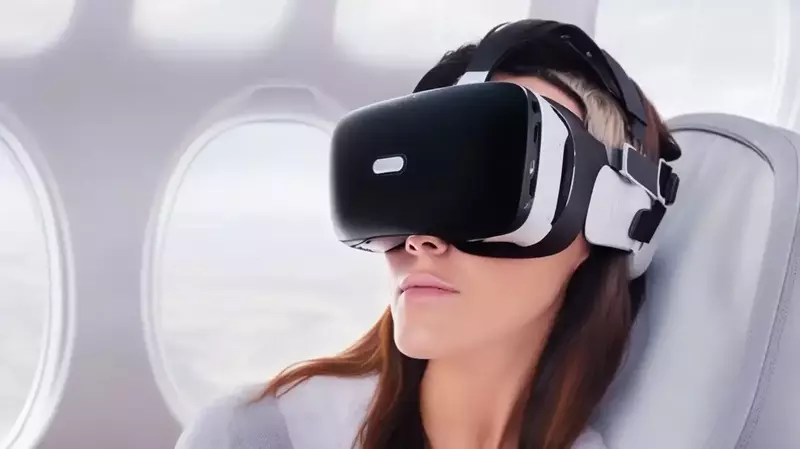This site contains affiliate links to products, and we may receive a commission for purchases made through these links.
Virtual Reality is a great way to escape the real world and enter into a new one. It is one of the most immersive and engaging forms of entertainment available today. But you may wonder, “Is it OK to Play VR Every Day?”
Playing VR every day has its pros and cons. Playing VR every day may lead to seizures, nausea, dizziness and disorientation, eye strain, and trouble focusing. On the plus side, it is a great way to escape Reality; exercising in VR is easier. It is also a great way to induce a relaxing environment even after playing for a long time.
In this blog post, I will explore if it is OK to play VR every day; I will also discuss the pros and cons of playing VR every day.

Is it OK to Play VR Every Day?
Everyone has a different experience with VR after using it for a long time. Some people can experience different symptoms, others don’t.
People are different, so depending on various factors such as underlying medical conditions and how immersive the VR is, you may or may not experience these effects.
My recommendation is to learn about the normal symptoms you can experience and be aware of them while in VR.
READ MORE! How Long Can You Play In VR Per Session? (Solved!)
Effects of Playing VR Every Day
Here are some of the most common effects of playing VR every day:
1. Loss of Spatial Awareness
It is important to be aware of your surroundings when playing VR. One of the dangers of VR is that you can lose track of your real-world surroundings. This can be especially dangerous if you are near stairs or other hazards.
When you acquire VR headsets, one of the most important guidelines is to ensure a clear and safe area around you to avoid any accidents.
This is particularly critical for full-room VR experiences like the HTC Vive, but it’s also vital for individuals playing a fixed or sitting game.
You will almost always lose spatial awareness of the environment around you if you spend longer than the recommended 30 minutes in VR.
After 30 minutes, identifying where objects are in the actual world from within your headset becomes considerably more difficult.
2. Increased Seizure Risk
Most VR equipment manufacturers advise against trying the experience if you have epilepsy or sensitivity to quickly changing light. However, these symptoms may arise even if you’ve never had a seizure before.
According to the instructional booklet that comes with the Oculus Rift:
“Some people (about 1 in 4000) may experience severe dizziness, seizures, eye or muscle twitching, or blackouts triggered by light flashes or patterns while watching TV, playing video games, or experiencing virtual reality, even if they have never had a seizure or blackout before or have no history of seizures or epilepsy.”
The number of hours you spend in the headset without taking a break increases your chances of having a VR-induced seizure; thus, treating VR like a sport is a reasonable rule of thumb. Take a stop for water and a breather now and again.
3. Eye Strain and Trouble Focusing
VR can cause eye strain and trouble focusing. This is because your eyes have to adjust to the constantly changing images on the screen. If you experience these symptoms, it is important to take breaks from VR and focus on distant objects.
Short-term eye strain is fairly common in VR, and it’s very comparable to what you’d get from staring at a computer screen or TV for too long.
This may be avoided by tweaking the headset’s concentration settings and taking frequent rests.
4. Dizziness and Disorientation
The degree of disorientation experienced by VR users varies greatly. Those prone to motion sickness or vertigo are more likely to feel disoriented in virtual Reality, but it may happen to anybody who hasn’t taken a break in a long time.
Games involving flight, high-speed movement, heights, and falling are known to produce acute disorientation and should be avoided by anyone susceptible to this response.
Dizziness and disorientation are because your brain is processing a lot of information that it is not used to. If you experience these symptoms, it is important to take breaks from VR and sit down or lie down until the symptoms pass.
5. Nausea
VR is a well-known trigger for nausea; it is caused by the vestibular system (the inner ear) and the visual system being out of sync.
This can happen when you are moving your head around a lot or if the game you are playing is very fast-paced. If you experience nausea in VR, it is important to take a break and sit down until the feeling passes.
READ MORE! Can a 10-Year-Old Use VR? (Solved!)
Why Play VR Every Day?
Playing VR every day can have some negative effects, but it can also have positive effects?
It Increases Comfort with VR Equipment
If you are uncomfortable with VR, playing it every day can help you get over that feeling. It can also help you become more familiar with the controllers and how to use them.
It Improves Your Skills at Playing Games
If you play VR games every day, you will get better at them. You will learn the mechanics and how to play the game more efficiently. This can be helpful if you want to compete in tournaments or other events.
You May Become More Social
Some people who play VR games every day become more social. They may start talking to other people who play the same game or join a community. This can be beneficial if you are shy or introverted.
It Can Be an Escape from Reality
For some people, VR can be an escape from reality. If you have a stressful job or life, VR can be a way to relax and unwind. You can explore different worlds and forget about your problems for a little while.
You can induce a VR experience like a forest scene that can help you relax and de-stress.
Final Thoughts
Playing VR every day is not necessarily bad for you, but taking breaks and understanding the potential risks are important. If you experience any negative symptoms, it is important to stop playing and seek medical help if necessary.
I hope this article has helped you understand the risks associated with playing VR every day and some of the benefits of doing the same.

Espen
Espen is the Director of PursuitMeta and has written extensively about Virtual Reality and VR Headsets for years. He is a consumer product expert and has personally tested VR Headsets for the last decade.




Leave a Reply